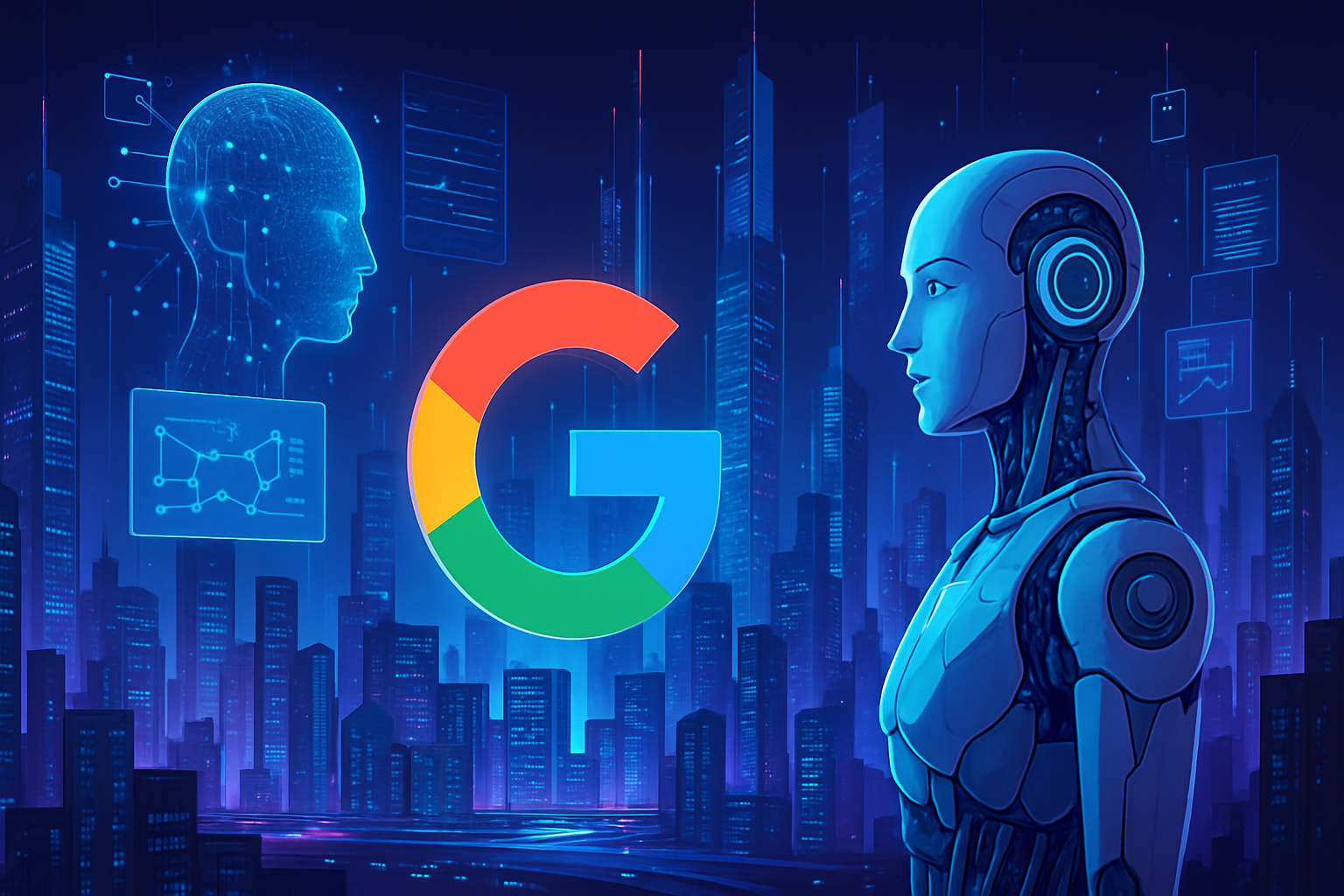The synergy between AI and search engines is redefining the contours of the internet. This technological boom catalyzes a revolution of algorithms in the service of search optimization. The stakes of this evolution concern the relevance and accuracy of results, thus shaping the user experience.
The Influence of Artificial Intelligence on the Search Market
The rapid rise of artificial intelligence (AI) is radically transforming the landscape of online search. Google, as the industry leader, enjoys an undeniable competitive advantage through the integration of advanced AI solutions into its search algorithms. These innovations enhance the relevance of the results presented to users, thus creating an unparalleled experience.
Google’s New AI Technologies
Google is investing heavily in AI technologies such as natural language processing and machine learning. These advancements enable the search engine to interpret complex queries. The use of predictive models facilitates anticipating user needs, guiding them towards instant answers.
A virulent significance will emerge from projects like BERT and MUM. These models enrich the contextual understanding of searches, allowing for smoother and more relevant interaction. By integrating these tools, Google creates a clear dominance over its traditional competitors like Bing and Yahoo.
User Privacy and Trust
The issue of privacy raises growing concerns. Recently, the Proton group criticized Apple’s privacy policy regarding AI, highlighting gaps in the protection of personal data. User trust remains a major challenge for Google, which must constantly reassure its consumers.
Following this discussion, articles have mentioned the need for an ethical framework to regulate the use of AI. The need for transparency becomes paramount to maintaining a trust relationship with users. A balance between innovation and data protection is necessary.
The Challenges of Artificial Intelligence
The challenges related to integrating AI are evident. A recent study reveals that AI can reduce developers’ efficiency by 19% in solving problems. This raises questions about the true added value of these tools in software development. The consequences on productivity call for an in-depth reflection on the use of AI.
It appears essential for Google to refine its AI technologies while considering the repercussions on development teams. Managing automation and its impact on employment represents critical challenges in the future of the tech industry.
The Response of Competitors
In response to Google’s rising power, competitors are reacting by developing their own AI solutions. Meta, for example, is considering creating more specialized AI models. The company is thus seeking to catch up while preserving its image as a pioneer in the field of digital technologies.
Initiatives from Elon Musk’s company, including the removal of inappropriate posts from chatbots, illustrate another approach to capturing the AI market. This reflects a general willingness in the tech ecosystem to fine-tune algorithms to meet user expectations.
The Effects of AI on Social Media
AI-assisted creation represents a new source of divergence on social networks. Instant and personalized interactions not only change the user experience but also influence the dynamics of online discussions. Social media is entering a new era where AI shapes interactions and the content disseminated.
Heated debates are emerging regarding the quality of generated content. The legitimacy of information driven by AI algorithms is being questioned. This precariousness highlights the need for a solid ethical framework regarding the use of AI technologies in the field of information and entertainment.
Conclusion on the Future of Google and AI
The challenges and opportunities related to artificial intelligence outline an exciting future for Google and its competitors. Companies must skillfully navigate through the growth of an increasingly omnipresent AI. The constant shaping of this technological advancement will determine the contours of the search market and digital interactions in the years to come.
Frequently Asked Questions
How does the rise of AI influence Google’s search algorithms?
The rise of AI allows Google to improve the relevance of its search results by analyzing larger volumes of data and better understanding user intent.
What are the main advantages of AI use by Google in its services?
The main advantages include increased personalization of search results, effective detection of quality content, and the ability to handle complex queries with greater accuracy.
How does AI change the way businesses must optimize their content for SEO?
Businesses must now focus on creating quality content that meets the real needs of users, rather than simply meeting technical criteria.
How does Google use AI to combat misinformation?
Google deploys AI techniques to detect and assess the credibility of information by analyzing sources and contexts to display reliable results.
Does the growing use of AI by Google affect the ranking of small businesses?
Yes, small businesses may struggle if they do not adapt, as competition for visibility increases and those who do not create optimized content may suffer lower rankings.
What skills are necessary to thrive in an AI-dominated work environment like Google?
Skills in data analysis, understanding machine learning algorithms, and digital content strategy are becoming increasingly essential for professionals wishing to thrive.
What are the ethical implications of Google’s use of AI?
Implications include protecting privacy, transparency of algorithms, and combating algorithmic bias to ensure fair and equitable information for all users.
How does AI help improve the user experience on Google’s platforms?
AI allows for analyzing user behavior to offer personalized recommendations and optimize navigation, making the experience smoother and more relevant.






